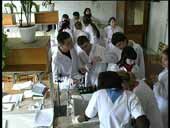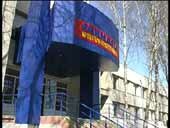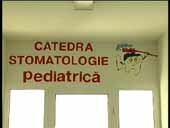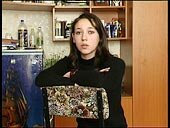Placing
The people of Moldova are famous for their endless hospitality. Go inside and you will find yourself in a world of kindness and decorum, of songs and rich collections of handicrafts made by many generations which will enchant both your heart and eyes.
Republic of Moldova is a South-Eastern Europe country with an interesting, rich in events history, situated on the intersection of commercial, cultural and tourist routes joining the West and the East, the North and the South. It is bordered by Ukraine to the north, east, and south, and by Romania to the west. Moldova has declared its independence in August 1991. Since 1992, Moldova is a member of the United Nations and International Monetary Fund.
The majority of the population is Romanian speaking, although ethnic Ukrainians, Russians, Gagauzi Turks, Bulgarians, and others account for slightly over one third of the population. Moldova is a country of orthodox religion; however, there are also Catholic and Muslim Churches, as well Judaism.
The state language in Republic of Moldova is Rumanian. Along with Rumanian the most spoken languages are Russian, Ukrainian, English, and French.
The main religion in Republic of Moldova is Christianity, 95% of people are orthodox.
The climate in the Republic of Moldova is continental, with mild winters and torrid summers. Weather in Moldova is variable, with for distinct seasons. About 150-200 days of the year are sunny, with average temperature over 16 ¢ªC. Summer weather can be expected in May, June, July, August, and September. Autumn weather may begin in September and last into October. In autumn rains are usually and the nights become cool. The months of November through March bring us winter conditions, with snowstorms and temperatures below zero. Spring may arrive as early as March.
On a relatively small territory of 33.700 km2 with a population of 4.3 million people and with one of the highest density of population in Europe (about 130 persons per km2) besides, the modern architectural ensembles the monuments of 600 years of the Moldavian state: fortresses, monasteries, churches, historical monuments of the XV-XIX centuries have been preserved and protected by the state. On the fertile lands rich harvests of cereals, sunflower, sugar-beet, vegetables and fruits are being grown up. Moldova has authentic culture, well known by its charming folk songs and dances, its classic and modern art and theatre. Tourist attractions are under continuous development.
Moldova's economy is concentrated in the production and processing of agricultural goods. It has a comparative advantage in agriculture. Approximately 75 percent of its territory is covered by the rich black chernozem soil, and the country has a temperate climate. In many countries all over the world the Moldavian wines, carpets and modern technologies in the light and food industry are known and highly appreciated.
Travelers to Moldova have for centuries been impressed by the beautiful landscapes, which stretch over enormous territories between the Nistru and Prut rivers. The varied relief of the country allows one to enjoy the river canyons and imposing forest-covered hills. They say that Moldova resembles the legendary Mesopotamia with its garden towns and its agricultural lands. The people are peace loving and hospitable. The greeting "Bine ati venit"("Welcome") could be read in airports, railway and bus stations, at the entrances in cities and other localities.
Chisinau is the capital of the country and the biggest locality of Moldova. It is a symbol of our nation. It's a vivid, cosmopolite city, where different cultures, religions and life styles live together. Life in Chisinau is dynamic due to a lot of students who study at different educational institution. Chisinau is a city of youth.
Chisinau has a wide network of public transport including buses, trolleybuses, mini - vans, taxis. By using public transportation means students can move easily and quickly to different districts of our city. Although there is a rather busy traffic during rush hours, the security of traffic is assured by road police officers. Besides, the security of Chisinau' inhabitants is assured by policemen.
Although Chisinau permanently changes, it has many historical and architectural monuments. It is a city of culture, where every person can find something for his soul. Interesting information about history, culture and nature of Moldova can be found in numerous museums.
Situated at the crossroad of many cultures, Chisinau has been always characterized by the multitude of art stiles. Those people who are fond of theatre, music, dance and movies have the possibility to watch performances, played by troupes, bands and groups from all over the world in the framework of the national and international festivals.
Chisinau is a hospitable city. Commercial centers keep their doors open for potential buyers where can be purchased high quality goods made in different countries.
Culture and sport centers - 15 theatres and Concert Halls, 7 cinemas, 10 museums, 7 parks, 10 stadiums and sport complexes, 12 libraries and halls for reading are always at the disposal of Chisinauites and foreigners.
Bars and restaurants offer national dishes together with foreign cuisines such as Indian, Arabic, Chinese, and Russian etc.






